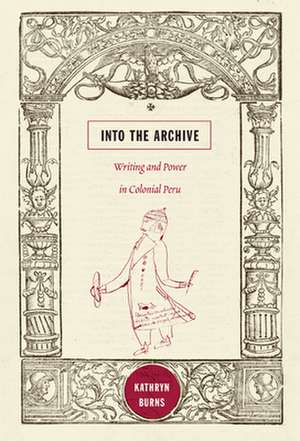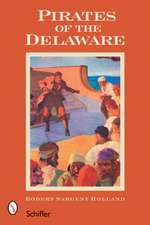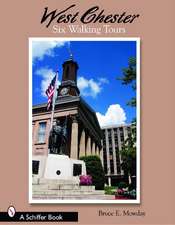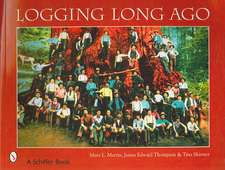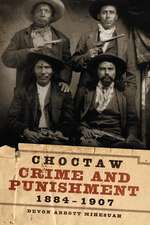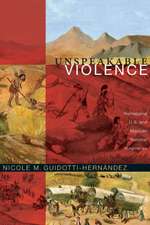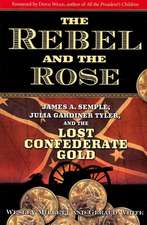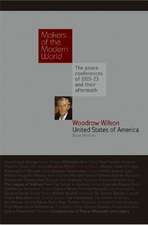Into the Archive – Writing and Power in Colonial Peru
Autor Kathryn Burnsen Limba Engleză Paperback – 26 sep 2010
Preț: 204.10 lei
Nou
Puncte Express: 306
Preț estimativ în valută:
39.06€ • 40.73$ • 32.46£
39.06€ • 40.73$ • 32.46£
Carte tipărită la comandă
Livrare economică 21 martie-04 aprilie
Preluare comenzi: 021 569.72.76
Specificații
ISBN-13: 9780822348689
ISBN-10: 0822348683
Pagini: 264
Ilustrații: 29 illustrations
Dimensiuni: 158 x 229 x 23 mm
Greutate: 0.36 kg
Ediția:New.
Editura: MD – Duke University Press
ISBN-10: 0822348683
Pagini: 264
Ilustrații: 29 illustrations
Dimensiuni: 158 x 229 x 23 mm
Greutate: 0.36 kg
Ediția:New.
Editura: MD – Duke University Press
Cuprins
Illustrations; Preface; AcknowledgmentsIntroduction; 1. Of Notaries, Templates, and Truth; 2. Interests; 3. Custom; 4. Power in the Archives; 5. Archives as Chessboards; EpilogueNotes; Glossary; Works Consulted; Index
Recenzii
While historians are increasingly attentive to how actions and intentions get filtered through the voices and pens of intermediaries, or standardized by juridical and legal formulas, very few scholars have undertaken a systematic examination of these processes and their implications. Kathryn Burns has done so, and brilliantly. Her book Into the Archive will be of enormous interest to cultural and social historians of colonial Latin America, to students of Latin American history more broadly, and to many scholars outside the field of Latin American studies, particularly those engaged in research on the early modern world, legal history, and the history of archives.--Barbara Weinstein, New York UniversityBelieve me, sir, it all depends on us! brags a notary in a Quevedo play. So true, say historians of early modernity; after all, history comes to us through these mens quills. But who are they? With an ethnographic eye, Kathryn Burns brings to life the surprisingly unpredictable human business that took place over notarial desks. Burnss fresh, rich, and ingenious investigation of notaries power over letters adds crucially to our understanding of how Andean peoples joined the transatlantic textual community.--Frank Salomon, author of The Cord Keepers: Khipus and Cultural Life in a Peruvian VillageKathryn Burns leads us into the archive through a fine-grained historical ethnography of notarial practice and its social context in colonial Cuzco. Gracefully written and engaging, yet rigorous in its use of historical materials and its social analysis, her reading of the colonial notarial office as a space of political and social negotiation and intrigue will transform our appreciation of these repositories and our understanding of the colonial Latin American lettered city. No longer transparent, the very production of archival documents becomes a space in which colonial society is revealed.--Joanne Rappaport, author of The Politics of Memory: Native Historical Interpretation in the Colombian Andes
"While historians are increasingly attentive to how actions and intentions get filtered through the voices and pens of intermediaries, or standardized by juridical and legal formulas, very few scholars have undertaken a systematic examination of these processes and their implications. Kathryn Burns has done so, and brilliantly. Her book Into the Archive will be of enormous interest to cultural and social historians of colonial Latin America, to students of Latin American history more broadly, and to many scholars outside the field of Latin American studies, particularly those engaged in research on the early modern world, legal history, and the history of archives."--Barbara Weinstein, New York University "'Believe me, sir, it all depends on us!' brags a notary in a Quevedo play. 'So true,' say historians of early modernity; after all, history comes to us through these men's quills. But who are they? With an ethnographic eye, Kathryn Burns brings to life the surprisingly unpredictable human business that took place over notarial desks. Burns's fresh, rich, and ingenious investigation of notaries' power over letters adds crucially to our understanding of how Andean peoples joined the transatlantic textual community."--Frank Salomon, author of The Cord Keepers: Khipus and Cultural Life in a Peruvian Village "Kathryn Burns leads us into the archive through a fine-grained historical ethnography of notarial practice and its social context in colonial Cuzco. Gracefully written and engaging, yet rigorous in its use of historical materials and its social analysis, her reading of the colonial notarial office as a space of political and social negotiation and intrigue will transform our appreciation of these repositories and our understanding of the colonial Latin American 'lettered city.' No longer transparent, the very production of archival documents becomes a space in which colonial society is revealed."--Joanne Rappaport, author of The Politics of Memory: Native Historical Interpretation in the Colombian Andes
"While historians are increasingly attentive to how actions and intentions get filtered through the voices and pens of intermediaries, or standardized by juridical and legal formulas, very few scholars have undertaken a systematic examination of these processes and their implications. Kathryn Burns has done so, and brilliantly. Her book Into the Archive will be of enormous interest to cultural and social historians of colonial Latin America, to students of Latin American history more broadly, and to many scholars outside the field of Latin American studies, particularly those engaged in research on the early modern world, legal history, and the history of archives."--Barbara Weinstein, New York University "'Believe me, sir, it all depends on us!' brags a notary in a Quevedo play. 'So true,' say historians of early modernity; after all, history comes to us through these men's quills. But who are they? With an ethnographic eye, Kathryn Burns brings to life the surprisingly unpredictable human business that took place over notarial desks. Burns's fresh, rich, and ingenious investigation of notaries' power over letters adds crucially to our understanding of how Andean peoples joined the transatlantic textual community."--Frank Salomon, author of The Cord Keepers: Khipus and Cultural Life in a Peruvian Village "Kathryn Burns leads us into the archive through a fine-grained historical ethnography of notarial practice and its social context in colonial Cuzco. Gracefully written and engaging, yet rigorous in its use of historical materials and its social analysis, her reading of the colonial notarial office as a space of political and social negotiation and intrigue will transform our appreciation of these repositories and our understanding of the colonial Latin American 'lettered city.' No longer transparent, the very production of archival documents becomes a space in which colonial society is revealed."--Joanne Rappaport, author of The Politics of Memory: Native Historical Interpretation in the Colombian Andes
Notă biografică
Textul de pe ultima copertă
"Kathryn Burns leads us into the archive through a fine-grained historical ethnography of notarial practice and its social context in colonial Cuzco. Gracefully-written and engaging, yet rigorous in its use of historical materials and its social analysis, "Into The Archive"'s reading of the colonial notarial office as a space of political and social negotiation and intrigue will transform our appreciation of these repositories and our understanding of the colonial Latin American 'lettered city.' No longer transparent, the very production of archival documents becomes a space in which colonial society is revealed."--Joanne Rappaport, author of "The Politics of Memory: Native Historical Interpretation in the Colombian Andes"
Descriere
A study of the colonial archives in Spain and Peru that sheds light on the early history of this region
